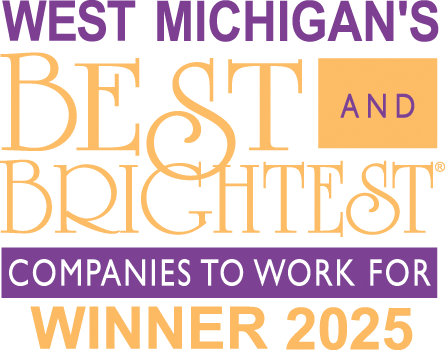

















How Gen Z is Reshaping the Building Products and Interiors Industry
The building products and commercial/residential interiors industry is undergoing a major transformation—not just in design and materials, but in the workforce itself. As Gen Z enters the job market, their expectations around work culture, technology, and company values are reshaping how businesses hire, retain, and engage talent.
For manufacturers, distributors, contractors, and designers in this space, adapting to Gen Z’s workplace mindset isn’t optional—it’s essential for staying competitive.
What’s Driving Gen Z’s Approach to Work in the Building Products Industry?
1. Flexibility Is No Longer a Perk—It’s an Expectation
Unlike past generations who accepted rigid work structures, Gen Z values flexibility—and that extends to how they work in sales, project management, product design, and installation roles.
Many companies in the building products sector are used to in-person collaboration, but the pandemic proved that remote and hybrid work is possible for many roles, especially in marketing, sales, and design. Companies that embrace hybrid work models or offer flexible schedules will be more attractive to young professionals entering the industry.
2. Digital Tools and AI Are Changing the Game
Gen Z isn’t just tech-savvy—they’re tech-native. Growing up in a digital-first world, they expect modern tools, digital workflows, and AI-powered solutions in their work environments.
In the building products and interiors industry, this means:
- Leveraging AI for sales and project management – Using smart software to track leads, automate proposals, and optimize supply chains.
- Incorporating digital collaboration tools – Platforms like BIM (Building Information Modeling), virtual showroom software, and AR/VR visualization tools make it easier for teams to work together, regardless of location.
- Providing upskilling opportunities – Companies that invest in training employees on new technologies will attract and retain Gen Z talent who crave ongoing learning.
However, Gen Z also values ethics in technology. Many are concerned about AI’s role in job automation and data privacy. Employers must be transparent about how technology is used in their businesses to gain trust.
3. Sustainability and Ethical Business Practices Matter More Than Ever
If there’s one thing Gen Z won’t tolerate, it’s greenwashing—companies that claim to be sustainable but don’t follow through.
The building products and interiors industry has seen a major push toward sustainability, from eco-friendly materials to energy-efficient building systems. But Gen Z employees and customers expect more. They want:
- Real environmental impact – Are your materials sourced responsibly? Do you minimize waste? Are you prioritizing carbon-neutral operations?
- Diversity, equity, and inclusion (DEI) initiatives – Gen Z looks at company culture, leadership diversity, and how inclusive a workplace truly is.
- Social responsibility beyond marketing – They want to work for companies that give back – whether through community projects, workforce development, or ethical labor practices.
For building product manufacturers, dealers, and interior designers, this means integrating sustainability into the business model—not just the marketing materials.
How Companies in the Building Products Industry Can Adapt
Gen Z is bringing new energy and expectations to the industry. To attract and retain top talent, companies should:
- Modernize the Workplace – Use digital tools to enhance efficiency and embrace hybrid work where possible.
- Invest in Sustainability – Go beyond marketing buzzwords and commit to eco-friendly materials, ethical sourcing, and waste reduction.
- Emphasize Career Growth—To keep employees engaged, offer training in AI, digital collaboration tools, and sustainability best practices.
- Foster an Inclusive Culture – Prioritize diverse hiring, inclusive work environments, and fair wages to align with Gen Z’s values.
Building a Workforce for the Future
The building products and interiors industry is at a turning point. Companies that listen to Gen Z, embrace technology, and commit to sustainability will attract the best talent and thrive in a changing market.
Rather than resisting these shifts, forward-thinking businesses will see them as opportunities—to build stronger teams, create more innovative products, and shape a more sustainable, inclusive future for the industry.
Are you ready to adapt and grow with the next generation?
At The Bridger Group, we connect companies in the building products and interiors sectors with exceptional leaders who drive results. Contact us today.
Read more








Need a faster, smarter, smoother search process?











